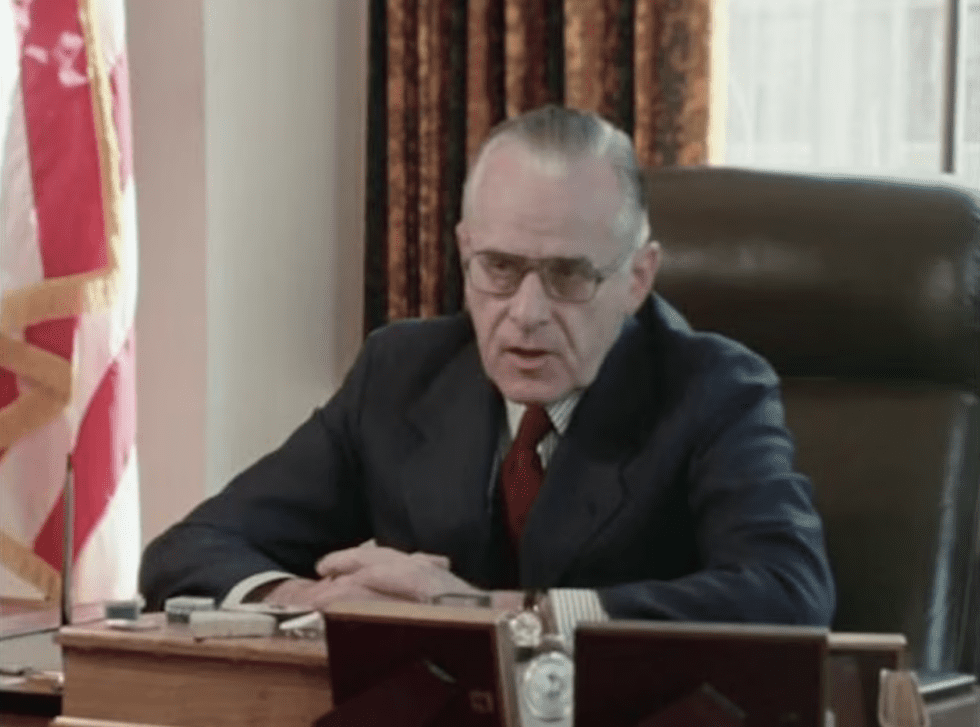

An investigation of the US policy that makes food more powerful than oil.
“‘For agreeing to détente, Russia got American food. For signing a Middle East peace agreement, Egypt got American food. For prolonging the war in Vietnam, the generals of Saigon got American food, which they sold to buy arms.”
In the first of his 1976 Pilger series, a trilogy of documentaries made in the United States, John Pilger reveals American Secretary of State Henry Kissinger’s policy of refusing aid to countries that do not support his government in the United Nations and the existence of a “Zap Office” – officially, the Office of Multilateral Diplomacy – specially set up in the State Department to monitor voting patterns.
The United States controls half of all the world’s wheat, two-thirds of all cereal foods and 95 per cent of soya beans, says Pilger, and food has been a decisive factor in every major deal recently concluded by Kissinger. American Secretary of Agriculture Dr Earl Butts says that he is “not very sympathetic with the food needs of a nation where their governments and their leaders are constantly demeaning the United States”.
In 1974, the General Accounting Office in Washington found that most American food aid did not go to starving countries, but to regimes politically acceptable to Washington. Cutting food aid was one of the weapons that brought down the democratically elected Allende government in Chile. It was restored following the military coup. Sierra Leone is an example of a country consistently voting against the United States at the United Nations and not receiving food aid, despite its great need.
The revelations in Zap!! The Weapon Is Food were considered so controversial that the Independent Broadcasting Authority demanded that a “disclaimer” be attached to this film and the rest of the Pilger series. The result was a caption and voice-over at the start and end of each documentary. “In the programme which follows, reporter John Pilger expresses a personal view,” were the words used before the opening titles. Then, at the end, an announcer intoned: “In the programme you’ve just seen, reporter John Pilger was expressing a personal view.”
Zap!! The Weapon Is Food (Pilger, ATV), ITV, 6 September 1976
Producer-director: Richard Marquand; producer: Richard Creasey (26 mins)


